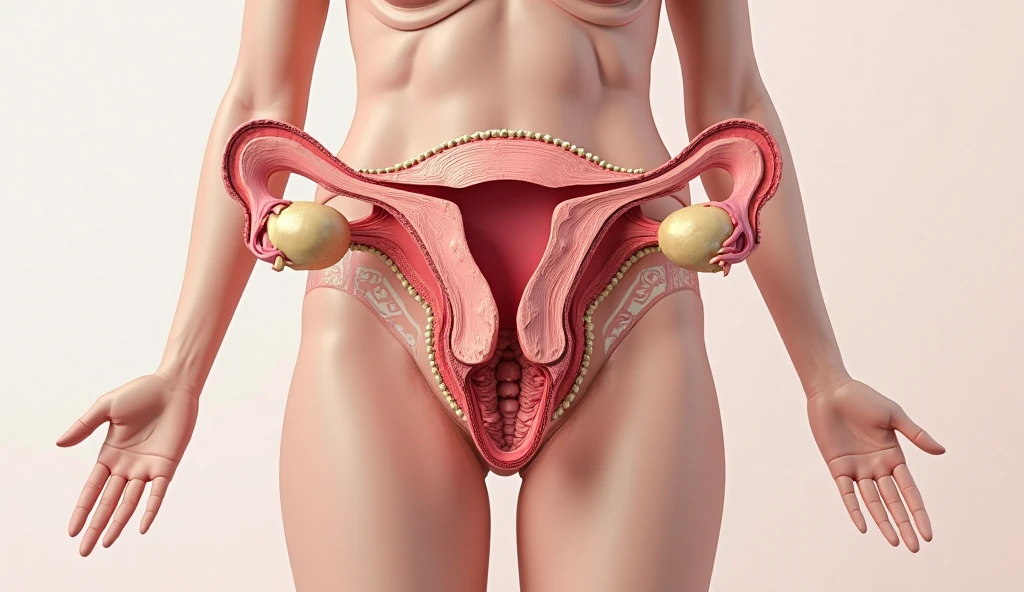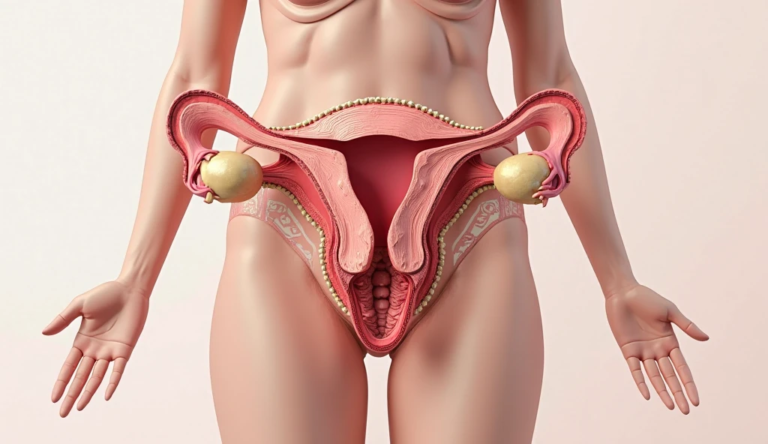Introduction
Vaginal health is an important yet often under-discussed aspect of a woman’s overall well-being. Many women face issues like infections, dryness, and discomfort at some point in their lives, but understanding how to care for the vagina is essential for maintaining long-term health. In this article, we will dive into key practices, bust common myths, and provide essential tips to ensure optimal vaginal health.
Understanding Vaginal Anatomy
The Vagina vs. The Vulva
The vagina and vulva are often confused, but they represent two distinct parts of a woman’s genital area. The vagina is the internal canal leading to the cervix, while the vulva is the external part, which includes the labia and clitoris. Understanding the difference is crucial when it comes to proper care and hygiene.
1.2 The Vaginal Microbiome
The vagina is home to a unique ecosystem of bacteria. This vaginal microbiome plays a vital role in protecting against infections and maintaining a healthy pH balance. Having a healthy balance of good bacteria, such as lactobacilli, is essential to vaginal health, and factors like diet, hygiene, and antibiotic use can disrupt this balance, potentially leading to infections like yeast infections or bacterial vaginosis.
1.3 Hormonal Influences
Hormones play a significant role in a woman’s vaginal health at various stages of life. Puberty, pregnancy, and menopause can all lead to changes in vaginal health due to fluctuating hormone levels. Regular check-ups can help manage these fluctuations and keep vaginal health in check.

Daily Hygiene Practices
2.1 Cleaning Techniques
When it comes to vaginal health, cleanliness is essential, but harsh soaps and douching can disrupt the natural balance of good bacteria. It is best to use warm water and avoid products that are heavily scented. This gentle approach helps maintain the natural pH levels of the vagina without causing irritation or infections.
2.2 Menstrual Hygiene
Menstrual hygiene is crucial for preventing infections. Change sanitary pads or tampons regularly to avoid the buildup of harmful bacteria. Unscented products are recommended to avoid irritation, as scented products can disrupt the natural balance of the vagina.
2.3 Clothing Choices
Choosing breathable fabrics like cotton can help maintain a healthy vaginal environment. Tight-fitting clothes and synthetic materials can trap moisture, creating an environment that is ideal for bacteria to thrive. Always aim for loose, comfortable clothing to allow the area to “breathe.”
Diet and Lifestyle Factors
3.1 Nutrition
Certain foods can support vaginal health. Probiotics, found in yogurt, and foods like leafy greens and berries, can help maintain a healthy vaginal microbiome. A balanced diet supports overall health and boosts immunity, which is important for preventing infections.
3.2 Hydration
Proper hydration is essential for overall health, and it also plays a crucial role in maintaining vaginal moisture. Drinking enough water keeps the vaginal tissues hydrated and supports the body in flushing out toxins.
3.3 Exercise
Exercise boosts circulation and overall well-being, which can also improve vaginal health. Physical activity can help reduce stress, a common factor that can disrupt hormonal balance and lead to vaginal discomfort.

Sexual Health and Safe Practices
4.1 Protection
Using condoms is one of the most effective ways to protect against STIs and prevent infections. Protecting your body during sexual activity is essential to maintain vaginal health and avoid complications such as urinary tract infections (UTIs) or yeast infections.
4.2 Lubrication
Lubrication is crucial for comfortable sexual activity. Water-based lubricants are recommended as they help reduce friction and prevent dryness, which is especially important for women going through menopause or breastfeeding, who may experience lower natural lubrication levels.
4.3 Communication
Open communication with your sexual partner about sexual health is vital for a healthy relationship. Discuss any concerns regarding vaginal health or discomfort to ensure a safe and comfortable experience for both parties.

Recognizing and Addressing Common Issues
5.1 Infections
Infections like yeast infections and bacterial vaginosis are common, with symptoms including abnormal discharge, itching, and discomfort. Recognizing these symptoms early and seeking medical advice is crucial for effective treatment.
5.2 Dryness and Discomfort
Vaginal dryness is often a result of hormonal changes, particularly during menopause. Solutions such as vaginal moisturizers or lubricants can provide relief, but if dryness persists, it is important to consult with a healthcare provider for further options.
5.3 When to Seek Help
If symptoms like unusual discharge, persistent irritation, or pain occur, it’s important to seek medical help. Early intervention can prevent more serious conditions and ensure you receive the appropriate treatment.
Life Stages and Vaginal Health
6.1 Puberty
During puberty, a woman’s body undergoes significant changes, including hormonal shifts that affect vaginal health. It’s important to teach young girls about proper hygiene, menstruation, and self-care during this time.
6.2 Pregnancy
Pregnancy causes hormonal changes that can affect the vaginal area. Many women experience increased discharge or sensitivity, which is usually normal. Regular visits to a gynecologist can help manage these changes.
6.3 Menopause
Menopause brings about significant hormonal shifts that can lead to vaginal dryness and a decrease in elasticity. Solutions like vaginal estrogen, lubricants, and pelvic floor exercises can help manage these symptoms and maintain vaginal health.
Mental Health Connection
7.1 Stress Impact
Stress can negatively affect vaginal health by disrupting hormonal balance and increasing the likelihood of infections. Managing stress through relaxation techniques like yoga or meditation can improve both mental and physical health.
7.2 Body Image
Having a positive body image plays a crucial role in vaginal health. Women who feel confident in their bodies are more likely to engage in self-care and maintain healthy habits, which is essential for long-term well-being.
Myths and Misconceptions
8.1 Debunking Myths
There are many myths about vaginal health, such as the belief that douching is necessary for cleanliness. In fact, douching can disrupt the vaginal microbiome, leading to infections. It’s important to rely on evidence-based information and consult with healthcare professionals.
8.2 Reliable Information Sources
For accurate and reliable information, turn to credible sources like gynecologists, trusted health websites, and health organizations. Avoid relying on questionable online sources that may provide misleading or harmful advice.
Tips for Maintaining Optimal Vaginal Health
9.1 Regular Check-ups
Routine gynecological exams are essential for maintaining vaginal health. Regular visits can help detect early signs of infection or other issues, ensuring timely intervention and effective treatment.
9.2 Staying Informed
Staying informed about vaginal health through trusted resources ensures that women can make educated decisions about their bodies. Knowledge is power when it comes to taking charge of one’s health and well-being.

Conclusion
Vaginal health is integral to overall well-being, and understanding how to care for your body at every stage of life is essential. By maintaining proper hygiene, making healthy lifestyle choices, and seeking medical advice when needed, women can ensure their vaginal health is optimal. Always remember, the key to a healthy vagina is knowledge, and with the right information, every woman can take charge of her health confidently.
Frequently Asked Questions (FAQs)
1. How can I maintain good vaginal health?
To maintain good vaginal health, focus on proper hygiene practices, a balanced diet, staying hydrated, and regular physical activity. Use warm water for cleaning, avoid harsh soaps, and choose breathable fabrics like cotton for your clothing. Make sure to stay informed about your body and consult a healthcare provider when necessary.
2. What are the common signs of vaginal infections?
Common signs of vaginal infections include abnormal discharge, itching, burning sensations, and discomfort during urination or sexual activity. Yeast infections and bacterial vaginosis are common causes, and it is essential to consult a healthcare provider for proper diagnosis and treatment.
3. Is it necessary to use probiotics for vaginal health?
Probiotics, particularly lactobacilli, can help maintain the balance of good bacteria in the vagina, promoting a healthy vaginal microbiome. Foods like yogurt or probiotic supplements may support vaginal health, but it’s important to consult your doctor to determine if they’re right for you.
4. What should I do if I experience vaginal dryness?
Vaginal dryness is common, especially during menopause. You can use water-based lubricants or vaginal moisturizers to alleviate discomfort. If dryness persists, it’s important to speak with a healthcare provider, as it could be a symptom of hormonal changes.
5. Can stress affect vaginal health?
Yes, stress can disrupt hormonal balance and increase the likelihood of infections, dryness, or discomfort. Practicing stress management techniques, such as yoga or meditation, can improve both mental and vaginal health.

